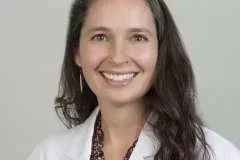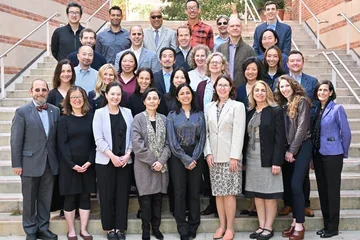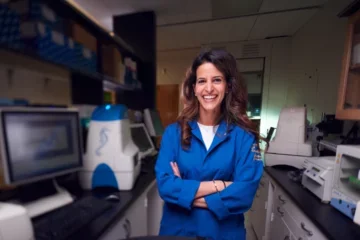How to Become a Doctor
Choosing to Become a Physician: Why Medicine?

A Day in the Life of Dr. Elizabeth Barnert, Physician and Assistant Professor of Pediatrics
According to Elizabeth Barnert, MD, MPH, MS, choosing to become a physician involves a series of decisions, followed by the process of actually becoming a physician—taking pre-med classes, applying to medical school, and journeying through residencies and fellowships.
"In other words, becoming a physician is a long process," she says.
Steps to Become a Doctor - Dr. Barnert's Journey to Medicine
Dr. Barnert, an assistant professor of Pediatrics at the David Geffen School of Medicine at UCLA (DGSOM), says becoming a physician was the best way she could help others. "It allowed me to combine my love for science and learning, while helping people in a way that felt meaningful and effective," she says.
She studied biology in college because she wanted to understand "how nature worked," but she always considered the possibility of medicine. "I knew I could become a physician because there was so much overlap between my major requirements and pre-med courses," she says.
Studying abroad in Central America during her junior year, Dr. Barnert contracted malaria. While she recovered, her experience helped her see the true life-or-death importance of quality treatments, treatments many village children she met never benefit from. "I realized the power of medicine and the importance of access to healthcare," she says. "It's a human right."
After graduating college, Dr. Barnert traveled to India, where she worked on a malnutrition project in rural Tamil Nadu. "I met many underweight newborns. One mother turned to me and asked me how to help her 8-day-old, underweight baby. We were in the family's dark mud hut. I didn't know how to help, and in that moment, I made a commitment to become a doctor."
Things to Know About Choosing to Become a Physician

Dr. Barnert finds the medical profession rewarding, noble, eye opening and humbling. "To observe closely what families go through and to be a part of their healing and growth is an honor," she says. "The gratitude of a family is priceless."
She advises anyone considering medicine to prepare for challenges. "I think some of the challenge is inherent in the tasks we are asked to do, such as helping a child with advanced cancer die comfortably," she says. "Another challenge comes from a cultural perspective that encourages physicians to devalue our own health. I think the best doctors also take good care of themselves."
A Doctor’s Role Goes Beyond Medicine
"Excellent communication is key," says Dr. Barnert. "This includes body language and subtle aspects of communication, such as tone and the spaces between words."
As a mother, Dr. Barnert has learned firsthand how a few words from a physician can offer comfort and encouragement. "Being positive and exhibiting caring to families really makes a difference," she says.
Dr. Barnert sees a need for visionary thinkers who can help solve the social ills and injustices related to healthcare access. "We need visionaries, leaders who can guide the profession towards becoming a vehicle for social justice," she says, "and also clinicians who are happy to do the everyday important work of caring for families who benefit from our help."



